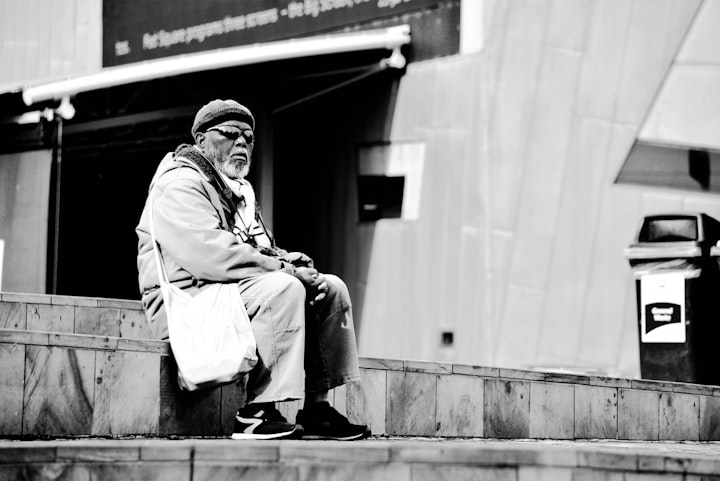Work Anxiety
Affects Every Other Aspect of Human Societies
Transitional periods, when new developments change everything about the way people work and live, cause people to experience fear, anxiety, and, even for some who know how to take advantage of changing times, exhilaration. How people work is interesting. Once agriculture was how families made ends meet. When farm machines grew sophisticated enough to free up family members to pursue careers besides farming it was a wrenching adjustment for many. Farms failed and children who thought they would inherit the farm and live the life had to adjust. Working in a factory is very different from working on a farm, although both things are classified as work. Factory work was the next trend especially when Ford gave us the assembly line.
So many transitions have occurred in the ways people work. When. steam was supplanted by combustion engines people had to adapt. When factory work was booming people thought they had found an economic safety zone. When that certainty became uncertainty people turned to office work to return to that economic safety zone. An economic safety zone is a place to work that reliably produces the resources to feed, clothe, and save for future needs for a family or a single parent or a single person. When someone can no longer find that economic safety zone s/he panics and then looks for a new position to supply what their lifestyle requires. When the market is chaotic and it is difficult to find a place to work that provides that safe financial place, people experience varying degrees of mental anguish. When a population is consumed by mental anguish day-to-day life becomes precarious. If there is no leader or trend that comes along to provide a reliable safety zone, then there is upheaval or failure. We see this all over the world. When people have a reliable economic safety zone in which to operate they can concentrate on things like the quality of the work they do, rewards provided to their psyche by the work they do.
Right now, we are in a time when many workers are not sure what their economic safety zone will look like in the future. Work from home or work at the office seems like a minor matter, since you still have work. However, when people left offices to work at home to help stop a pandemic it clearly was not easy to adjust. The traditional pattern where a husband or father closed himself in his study all day while his wife kept the children occupied (who were also home) did not work for every home situation. Single parent families had to train children to leave them alone during working hours or had to stagger their work in order to care for their children and their employer. Two income families had to find a live-in childcare provider/tutor or one parent had to give up a job perhaps. Now that families function in a WFH environment and children are back in school they are required to turn on a dime and go back to the office.
One article called this 'whiplash' because then delta came along and sent workers home again. Some workers are not so ready to go back to the office or even to the job they had. They have found that they like working from home. Workers are humans with feelings and these feelings affect the way the entire society functions at any given point in time. America does not feel calm right now. It is not humming along. Finding out what will make America hum is the key to what will happen in the world of work.
Rushing to ‘robot-up’ may be the next new thing but it creates as many problems as if solves. Capitalism relies on consumers. If people don't work, they can't consume. If robots, even temporarily displace multiple workers how will these workers find a new economic safety zone. Transitions may offer more jobs at some future time, but those caught in the crunch, left unemployed and unemployable will require some of our creative thoughts, if we like to live in a healthy society.
Will we have a Universal Basic Income? This was discussed in the PBS series on work, and it was a policy of Andrew Yang who ran for President and for Mayor of NYC. CEO's and other employers are aghast at the idea of a UBI, 'what pay people not to work', but if you like to live in a society that feels like it is working well that may be the only way to help keeps things afloat and keep the capitalism beloved by wealthy folks everywhere.
What about people who don't work in an office, like educators? Educators work a school day and then they work at home planning and marking papers, keeping records. Their days are sometimes long, and they strive to come up with ways to entice different sorts of learners to learn. WFH, teaching over zoom, has been less successful for many teachers and students than in-person learning. But going back to school with a virus still stalking the land and now affecting children is proving less than ideal. Some major thinking needs to be done about what the future of education in America will look like.
While one worker may find gig work exciting another might find it stifling to have to start over each day to create an economic safety zone that follows you wherever you go and depends entirely on your own resources to keep you and your family solvent from day to day. Although this new working model will probably stick around, it probably won't be the only way work is done. Since the way workers feel, either supported by work or in a constant state of uncertainty about where they will be working, affects the entire zeitgeist of a culture, a lot of energy is going into figuring out what will happen next in the world of work. But there is still far more speculation than solid insight and that keeps us all off-balance. What happens in the world of work is of vital interest if a theme of a culture is that work is at the center of life and survival depends on work that offers a wage sufficient to produce an economic safety zone.







Comments
There are no comments for this story
Be the first to respond and start the conversation.